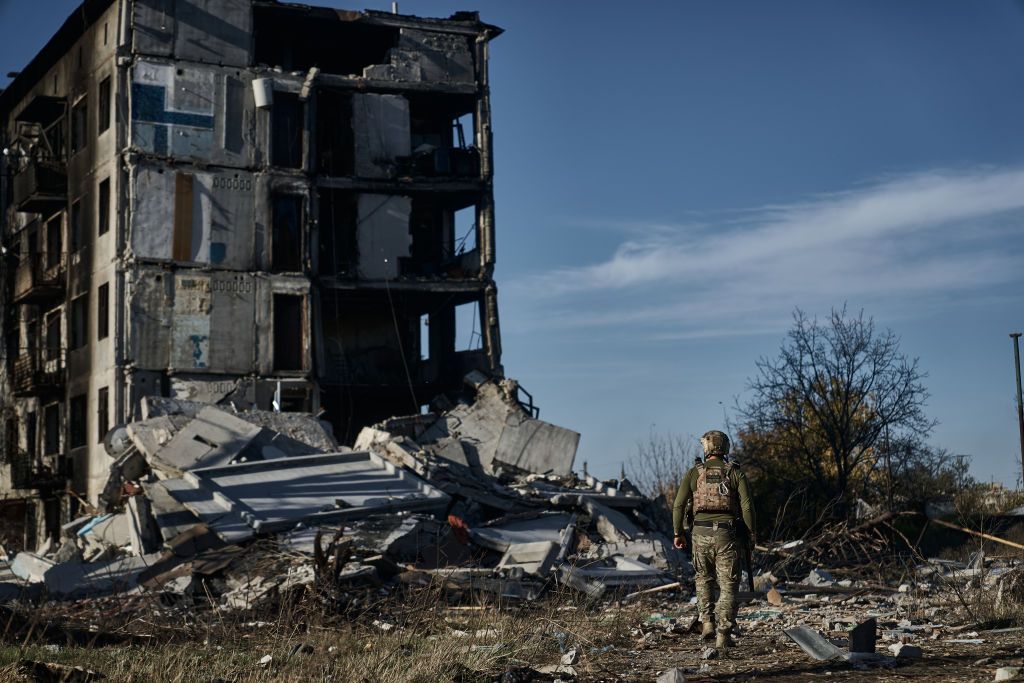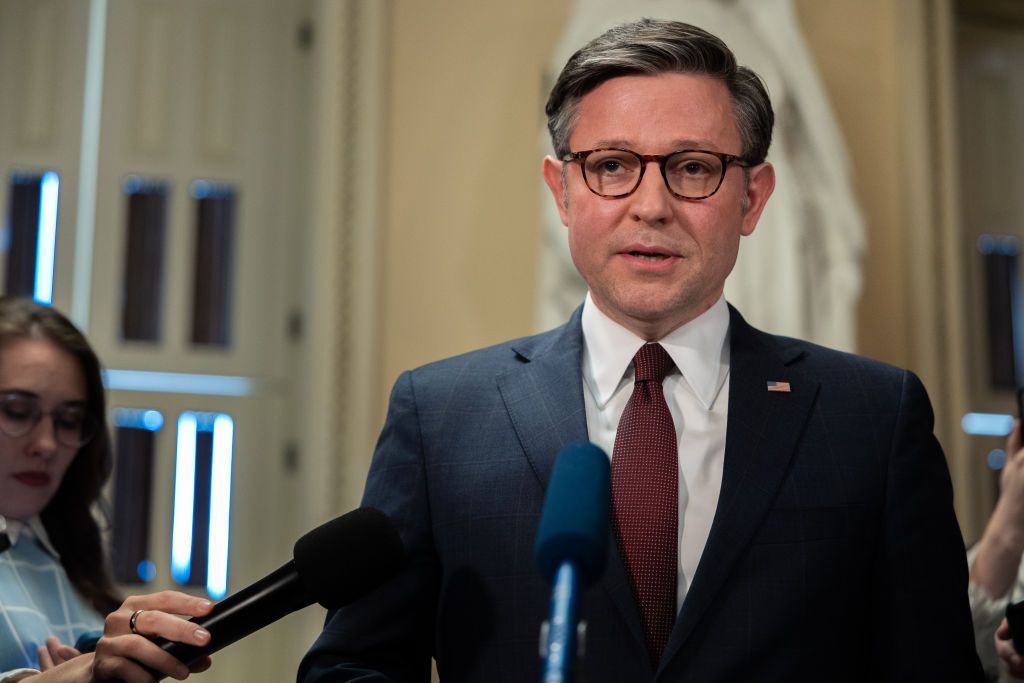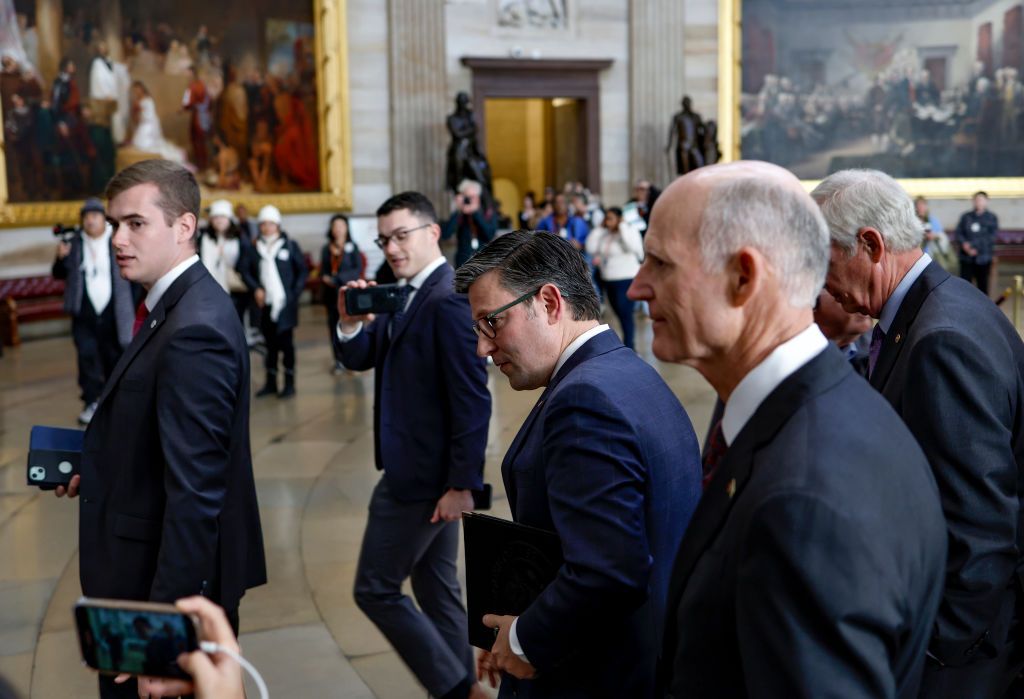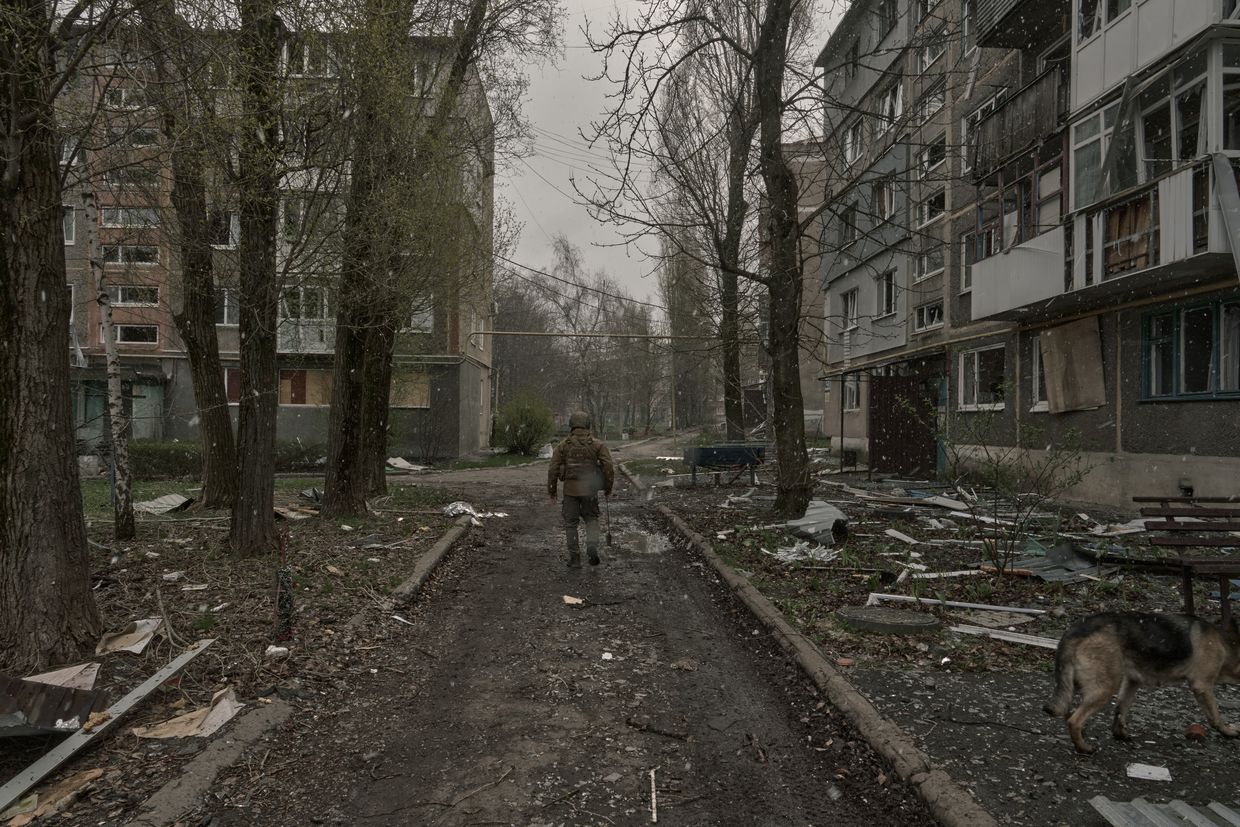After more than six months of hedging, backtracking, and unfulfilled promises, U.S. House Speaker Mike Johnson finally allowed a vote on aid for Ukraine, which was passed on April 20.
President Joe Biden made a request to Congress in October 2023 for $61 billion in aid for Ukraine. Following a grueling battle to appoint a new speaker of the House, Johnson insisted that aid requests for Ukraine should be separated from those for Israel and other priorities, leading to the long delay in getting Ukraine and other allies aid.
After a $95 billion foreign aid package passed the Senate in February, Johnson was again adamant that he would not allow a vote on the aid until the situation at the U.S. southern border was resolved.
Six months after Biden's request, the House overwhelmingly approved $60.84 billion in aid to Ukraine. The Pentagon said before the vote that the flow of weapons could resume within days of the bill passing both the House and Senate and being signed by Biden.
Despite the vote going through, the border and immigration reform issues that have plagued U.S. politics for decades remain unaddressed. Far-right members of Johnson's own party have also threatened that holding the vote could cost him his job.
What caused Johnson's sudden about-face?
Intelligence assessments
Johnson told reporters that he had received intelligence assessments that helped him fully understand the necessity of passing the aid bill.
"I really do believe the intel," Johnson said. "I think that (Russian President) Vladimir Putin would continue to march through Europe if he were allowed. I think he might go to the Baltics next. I think he might have a showdown with Poland or one of our NATO allies."
Johnson appeared to finally embrace the pivotal time he was in and his personal role in meeting the moment.
"History judges us for what we do," he said. "I think providing lethal aid to Ukraine right now is critically important."
But Johnson had been privy to intelligence briefings before, and previous one-on-one talks with President Volodymyr Zelensky and Biden had failed to move the needle.
The New York Times, citing sources, said that one of the most convincing moments was when Johnson attended a meeting at the Oval Office in February along with other congressional leaders.
CIA Director William Burns and other defense officials told Johnson that Ukraine was quickly running out of ammunition, including air defense interceptors, and warned that there would be dire consequences should the situation worsen.
Yet more than two months passed following that meeting, and there were countless moments in the interim in which Johnson could have brought the vote to the floor.
Another key factor was a statement from former President Donald Trump earlier in April after Johnson went to his Mar-a-Lago residence in Florida, in which he said that Johnson is "doing a very good job."
In a written comment to the Kyiv Independent, Rajan Menon, a senior research scholar at Columbia University, said that Trump "gave (Johnson) cover to proceed with moving the bill to a vote."
It was likely not a single moment or piece of intelligence that changed Johnson's mind, said Doug Klain, a policy analyst at Razom for Ukraine, in comments to the Kyiv Independent.
Instead, it was more of "things stacking up over time" as Johnson and "other Republicans were trying to figure out how to reshape the politics of Ukraine" for the party.
Risking his position
Johnson became the unlikely speaker following a tumultuous battle to replace Kevin McCarthy, who was ousted by far-right Republicans adamantly opposed to aid for Ukraine. It was not immediately clear how Johnson would address the U.S. support for Ukraine that had bedeviled his predecessor.
As Johnson hedged and waffled on Ukraine over the proceeding months, the far-right members that had ousted McCarthy also threatened that Johnson would be next if he allowed a vote to take place.
The movement to topple Johnson, led by hard-right Congresswoman Marjorie Taylor Greene, was gaining steam before he decided to hold the vote. At least two other congressional Republicans have since joined the effort to oust Johnson, but Greene ultimately said she would wait before moving forward with the motion to vacate.
Johnson said that the effort to remove him from his position does not bother him.
"I don't walk around this building being worried about motion to vacate. I have to do my job," he said.
"You do the right thing and you let the chips fall where they may."
Nonetheless, there were ample opportunities for Johnson to exercise his principled approach in previous months.
"(Johnson) went out last week and said I don't care if I lose my job, it's the right thing to pass Ukraine aid," Klain said.
"But if that were really true, then he would have done this two months ago."
The potential political risks for Johnson may have also been overstated since, as far back as January, some Democrats signaled that they would back Johnson in case a motion to vacate went forward. In light of the slim majority that Republicans have in Congress, it would likely take only a few votes from Democrats to defeat the move.

Getting his job done
The decision to allow the vote and its subsequent passage have been lauded by Ukraine and its supporters.
Yet articles praising Johnson, such as a piece by CNN's Stephen Collinson comparing him to Winston Churchill, have irked some who are still angry about the long delay.
Johnson's primary job as speaker is to move legislation forward through the House, as well as pushing members of his party to support it.
While the aid failed to gain the support of a majority of Republicans, more than 100 ended up voting for it. Given that all Democrats voted for the bill and that many Republicans openly said they would support it, actually obtaining the votes was not in question.
Instead, it was simply up to Johnson to actually allow the vote to happen.
"It was pretty clear if this came to a vote in the House, it would pass, and we knew that as soon as the Senate passed its (version of the bill in February)," Klain told the Kyiv Independent.
"Even the most hardline anti-Ukraine members of Congress, (such as) Andy Biggs, said (that) if Ukraine aid comes to the floor, we know it's going to pass, that's why we have to stop it."
Consequences of delay
In the six months since Johnson became speaker and aid remained at an impasse, Ukraine's battlefield position continued to deteriorate, including the loss of the key front-line city of Avdiivka. Biden said that the failure of Congress to pass aid caused the military's withdrawal from the city.
The true tally of Ukrainian losses that resulted from the delay in U.S. aid is hard to quantify, and it is difficult to unequivocally connect battlefield setbacks to the impasse, but there are a few illustrative examples.
Since October, Ukraine has lost 583 square kilometers (362 miles) of territory to Russia, said Kateryna Stepanenko, a Russia analyst at the Institute for the Study of War (ISW). Stepanenko added that the losses were mostly due to Ukraine's lack of sufficient artillery.
NATO Secretary General Jens Stoltenberg said on April 21 that the delay "has had real consequences."
"The Ukrainians have now, for months, been outgunned, roughly one to five, one to 10, depending on what part of the front line you are talking about."
After the Trypillia Thermal Power Plant in Kyiv Oblast was destroyed by a Russian missile strike in April, Zelensky said that the plant's defenses had failed because there were simply not enough air defense missiles left.
Beyond the losses for Ukraine, the delay also caused "tremendous damage... to America's prestige" and "the trust that our allies have in us," Klain said.
Once the bill is passed by the Senate and signed into law by Biden, which is all but assured, aid will quickly resume flowing into Ukraine. Zelensky and other Ukrainian officials expressed gratitude about the House vote, and Stoltenberg said that "it's not too late" for the aid to make a difference, but it is clear that Ukraine's battlefield position has worsened in the intervening months.
"Quite a lot of (the damage caused by the delay) is irreversible," Klain said.
















